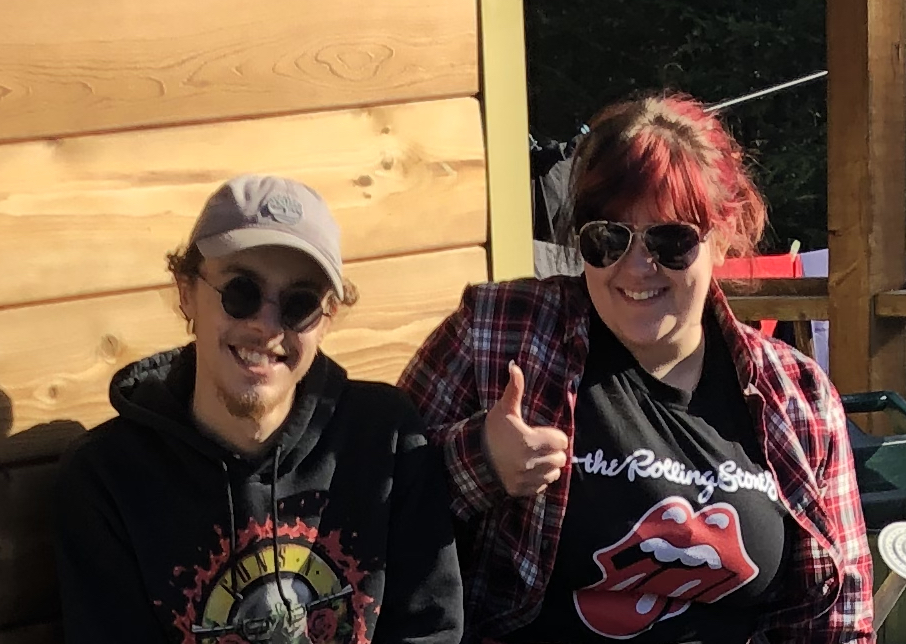
René Fournier and Cas Lauer hope that young people will be recognized for their contributions. 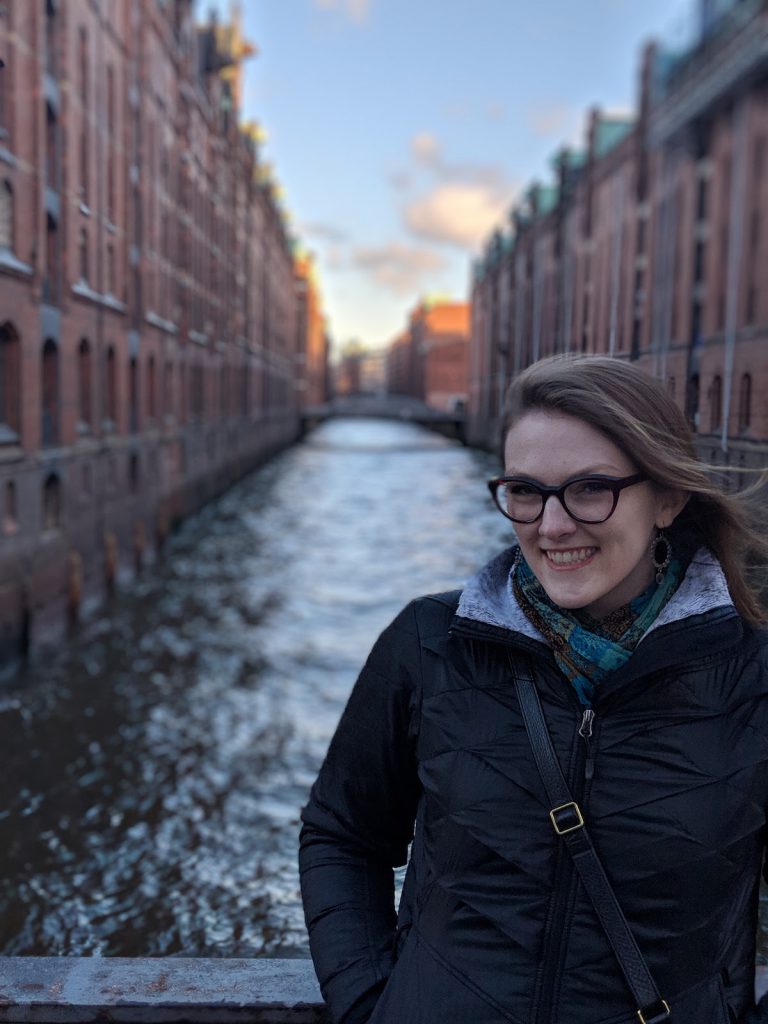
Emma Dealey says we need to make the best decisions with the information we have. 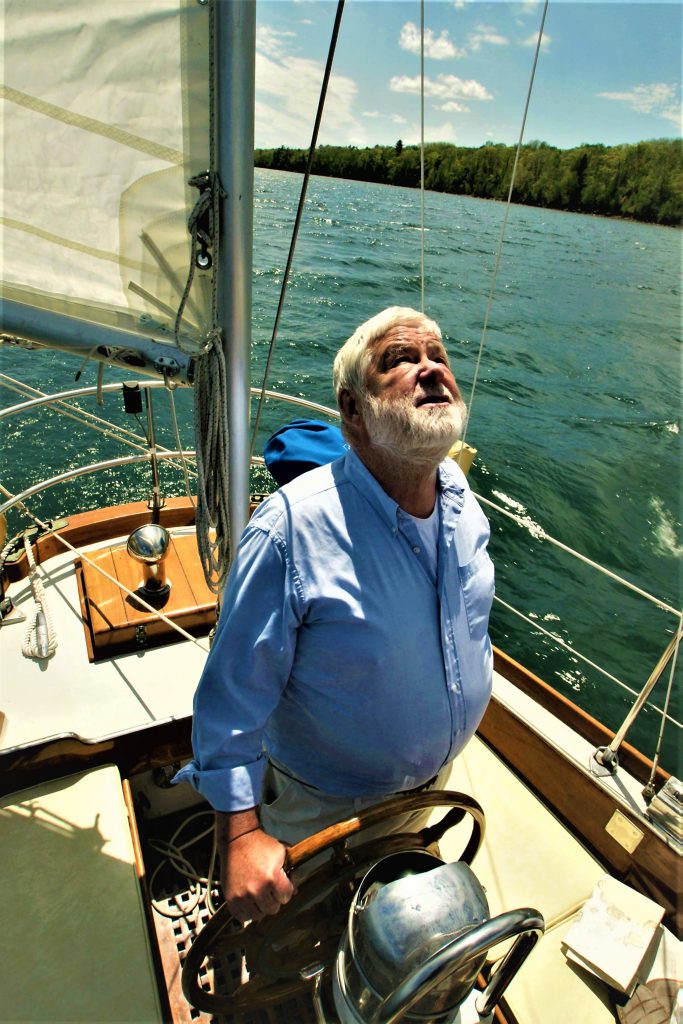
Dyke Van Etten Williams believes that hope lies with the younger generations.
What divides us also brings us together
It’s not surprising that the COVID-19 pandemic and its ripple effects are being compared to different historic events like the Spanish flu epidemic and World Wars I and II. These were times also characterized by isolation, supply shortages, the constant threat of death, risks related to being in public, and overall uncertainty. It’s well-documented that people suffered but ultimately overcame. It has made me think, of course, how we will come out of this.
What will be different? What will we have learned? How might we do better?
I turned to a panel of young and older people for the answers. While I’m not sure I have any solutions for what we discussed or even where I stand, COVID-19 is showing us that things have to change. That was an opinion universally shared by the oldest to the youngest I interviewed.
My worries for them were calmed by learning that they are doing okay, using the technology that’s available to connect with their peers, build their own communities, continue their education, work from home, and in a couple of instances, create something new. I realize this isn’t the case for everyone, but this is the group I had access to at this time.
All recognize their privilege to be able to do this and are more aware than ever of the social, cultural and economic divides that events like COVID-19 reveals in society. These discrepencies need to change.
I have felt this way for a long time and still worry about the many who continue to fall through the cracks – those who have lost the safety of school, work or community. Who is looking after them? It is my deep wish that the supports that the government is providing to non-profits and social services will help address some of those gaps here in Canada, and that similar steps are being taken throughout the world. Nothing has stood out more for me than the glaring fact that it’s hard to stay home when you don’t have one. I worry too about those with addictions or other mental health issues struggling through isolation. We are seeing the enormous goodness in people trying to bridge these gaps. We all need to do more.
One interesting discovery was how the younger ones in the group are moving away from gaming as much to Facetiming or Zooming, where they have a more visual connection to their friends online and are able to bring many people into the conversation. This seems to be a metaphor for our times, how not being able to gather is showing us how much we value that in our lives. One interviewee put it like this: “People have congregated to have a community, or have taken the time to build their own.”
COVID-19 is showing just how capitalism has failed us and created an economic divide – profits over people – a model that isn’t working during this crisis. The oldest of my subjects noted how this started decades ago when CEO salaries soared above that of their workers and that it continues today. He said, “The inequalities are getting worse and worse.”
COVID-19 is revealing just how deep those inequities and breaks in the system are. The hope is that our leaders now and those that follow will remember this and that people like us will hold them more accountable.
One of my sources said, “I hope that what comes out of this is the realization that the government systems and institutions [like universities] have been stuck in a lack of evolution. There’s been a complacency in the class divide, the race divide, the margins of income people are making. Hopefully things can be looked at through this lens and power given to people who haven’t been able to access it.”
I don’t want to steal all their words but in the end, I think COVID-19 has helped us see just how much we need one another – that in addition to the heroes in emergency response, healthcare and medical research, there are the garbage collectors, the grocery store cashiers, the delivery truck drivers, the shipping clerks, the social workers, the gas station attendants, the artists, the homeless shelter workers, the teachers, the peacekeepers and the list goes on. We are thanking these people in ways we never did before. They were always there, they were always important.
Hopefully we won’t forget them once this has passed.
Words of experience
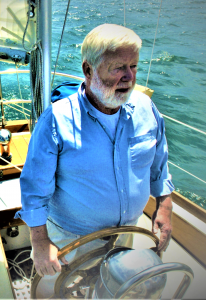
Dyke Van Etten Williams, 80, of Deephaven, Minnesota, is a frequent contributor to a magazine I work for, the Lake of the Woods Area News. His credentials are a mile long, including speaker, writer, teacher, mentor, administrator, mediator, community builder, leader, and entrepreneur. Among many things, he is a board member of the Quetico Superior Foundation and cofounder of Heart of the Continent Partnership, which focuses on protecting 5.5 million acres of canoe country on the Canadian and U.S. borders.
In the months preceding the coronavirus, Dyke wrote this on the topic of stewardship. It is remarkably relevant now:
What might work – the big picture
“Philosopher William James (1842-1910) had what for me has been a life-guiding vision. He saw that disparate peoples and communities could be brought together in common purpose through the vital challenges, shared experiences and camaraderie of war. Could that also be true through other sorts of crises – bonding widely varying folks and nations in common purpose, working toward a good end? I can remember the profound sense of community focus and effort during and right after World War II. More of that might work for us now.
I believe that the climate crisis – climate emergency – could be just such a challenge. The globe joined in a new stewardship – indeed survivorship – might just rise to the occasion. We will flourish or flounder in how we treat the earth from now on. Now is our chance to act in the best interests of the planet, its living beings, its resources and ourselves.”
I spoke with Dyke to get his permission to reprint these words but to also collect his thoughts on my questions related to COVID-19.
Dyke said, “It’s definitely more relevant to the youngsters. If there’s going to be a pulling together it likely isn’t going to be the old people who are set in their ways.” He added, “What’s intrigued me about the millennials is that they’ve got better values. ‘Stuff’ and ‘street cred’ aren’t as necessary.” He sees their heightened sense of empathy as the pathway that will truly make a difference – and hold governments and leaders accountable.“It’s terribly important – if I look at what I’ve learned – unregulated capitalism can’t continue,” he said. “If we stay with that, we’ll continue exploiting resources and people.”
Youth like Greta Thunberg give him hope. “Our young people have an ethic where they do care about each other.” That, Dyke says, will define how we come out the other side of COVID-19.
His “Auldbear” email address gets over a hundred messages a day from individuals, environmental groups, and others that are pointing to one common theme.
“All are expressing hope that people will become more important than profits.”
Dyke has devoted most of his life to mentoring young people. Perhaps it’s not surprising that his words were reflected in much of what my panel of under 30s had to say.
Working in essential services in Winnipeg, Manitoba
My son René, 21, goes to work every day to his essential minimum-wage job at a shipping company, despite the risks of infection. When asked what he hoped the ultimate outcome of the changes being necessitated by the virus would be, he said, “We’re working through it. I hope in general people start treating one another with more respect. My co-workers and I would like to see more recognition and respect for the work that we’re doing right now. There are a lot of people working essential jobs at minimum wage but we’re making less than those eligible for the CERB (Canada Emergency Response Benefit).”
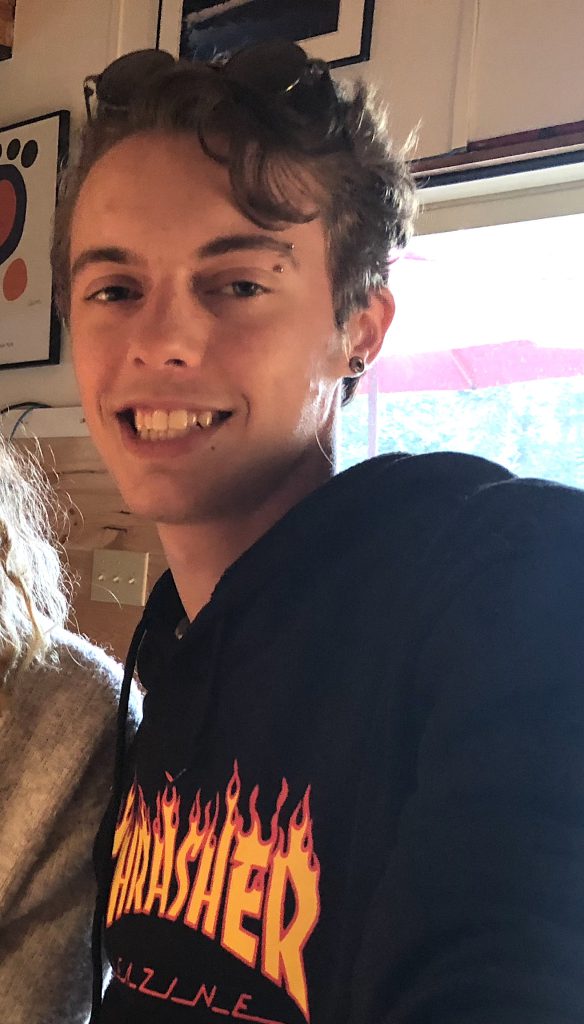
It’s not lost on René that there is more at stake right now than just learning to appreciate and treat people with the respect everyone deserves. “There’s so much going on,” he added.
“People have banded together and it’s not country to country; we need to support each other as a planet. We can band together to get through these hard times.”
Cas Lauer, 22, René’s fiancée, hopes that their generation will be taken more seriously. “We’re now recognized as the essential workers. There are a lot of us who are working in the grocery stores. I just hope my generation and younger generations aren’t belittled anymore for doing these kinds of jobs and that we could be on more equal ground despite the age differences.”
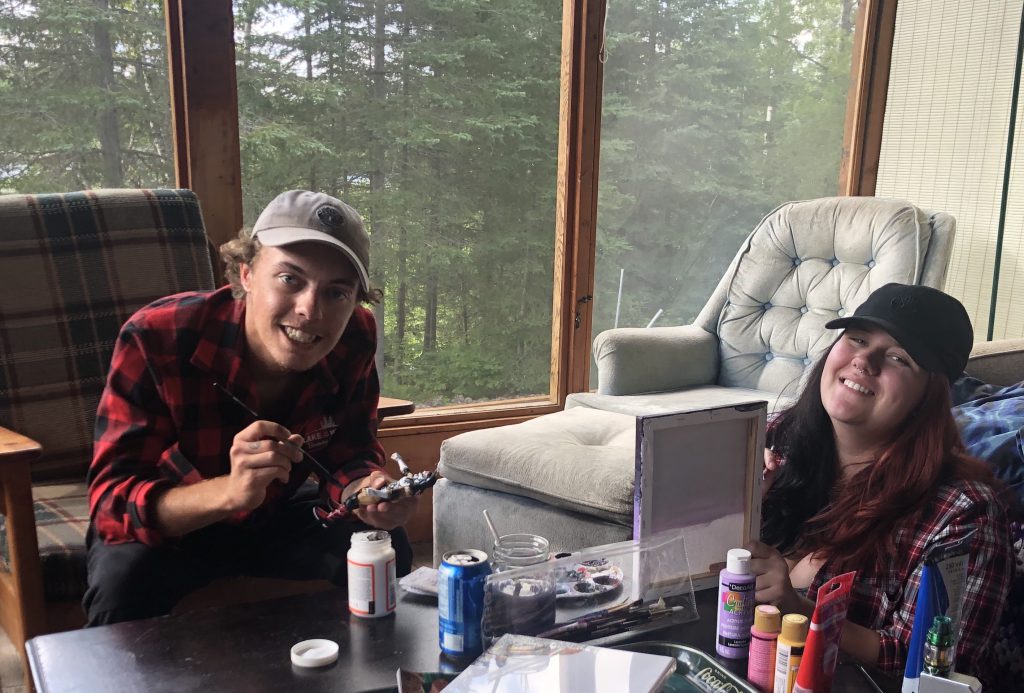
René and Cas say they’ve been doing okay. “It’s not out of the ordinary for us to stay home, we’re just doing what we’ve always done,” René said.
He observes, “Living paycheck to paycheck is a restriction of its own.”
While technology has helped all of the young people I spoke with to stay connected to their peers, there have been some surprises.
“I’ve painted all my life, I read – nothing has really changed,” said Cas. But she shares how coming home at the end of the day from her job helping run an ice cream shop often left her too exhausted to do anything else but game or watch TV. She was laid off several weeks ago. “Now I have more time to do what I really want. I tried a new style of painting that I nailed quickly.” She’s inspired to see where this will take her.
“We’re creative, there’s always something we can do,” René said.
Cas hopes that the world will continue to see the benefits of reduced pollution because people are travelling less.
“When we come through this, Mother Nature will be thanking us.”
Greater awareness from Hamburg, Germany
I turned my questions next to Emma Dealey, 25, who is on a youth work and travel visa in Hamburg, Germany, where she lives with her partner who is from the area. I asked Emma if she had discovered anything new – about herself or the world in general – to help get her through.
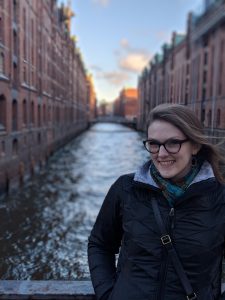
She believes that those who may have subscribed to the belief that the world was out to get them are now seeing how everyone is helping in the community. “There’s applause every evening for our frontline workers. People are trying to do the right thing but it’s become clear that it’s hard to know what the right thing is.”
A positive change for Emma and her partner Sebastian is to buy local as much as they can, which she thinks will be a permanent shift. Another change she hopes for echoes René and Cas.
“I hope we’ll see a change in workers’ rights in general.”
She added, “This could be the major economic event for my generation. I keep telling myself that my grandparents started out after the Great Depression, buying a house at the right time, selling a house at the right time. I’m looking at things differently.”
Because Emma’s future in Germany is still quite uncertain she hasn’t any firm conclusions of what she’ll be doing on the other side of the coronavirus. She said, “The uncertainty in general is super hard to deal with. All we can do is make the best decisions we can with the information we have and know that it’ll work out somehow.”
On a final note, Emma is hoping that there will be greater political awareness. “Germany has the number of hospital beds the World Health Organization recommends for the population – it’s double what you see in Canada.” She added, “People were upset when the provincial government cut healthcare. Now we’re paying for that with human lives. I hope people see that it’s cool to say that’s not okay.”
“I worry that people have short memories but hopefully this will be a harbinger of what can happen when we cut essential services.”
Building community in Kenora, Ontario
Easton Casavant, 16, is the youngest person I spoke with. I had an eight year old on my list, but he was distressed by the questions. It is indeed unimaginable the impact the coronavirus has had on the most innocent.
When I asked Easton if he had discovered anything new that’s helping him through all of this, his answer revealed how young people like him are discovering connections and community they might never have expected. “In all honesty, FaceTiming has been helping me lots because me and my friends will talk and we can add ten people to our FaceTime call.”
“We have talked about how crazy all of this is, that something nobody thought would turn out to be a big thing can be so unpredictable.”
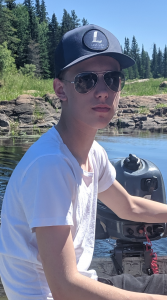
Besides learning how life can throw you a few curves, Easton is also developing some ideas about politics, saying that the government could have done more earlier on, although he appreciates being eligible for the CERB. Looking into the near future, he hopes that people will take self-isolating more seriously.
“I think that would be a good change. I know some people from school who are still hanging out with people, and it’s ruining everything for everyone else.”
Seeing cracks in the system from Toronto, Ontario and Halifax, Nova Scotia
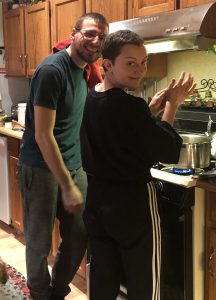
Finally, I spoke with my daughter Angela Fournier, 24, and Adam Tate-Howarth, 25, who are now together in Halifax where Angela attends the Nova Scotia School of Art & Design (fourth year). Adam, a math tutor, continues some teaching with students via Zoom, while Angela has now completed the school year through online classes.
They wonder about the breaks in the system that COVID-19 has revealed.
“This has made us look more broadly at the workings of systems – such as how does our food get to us, how do we interact with systems of labour and profit,” Adam said. “We were having broader conversations about what might have been broken in those systems long before this virus came on the scene. This is catastrophic but may be the start of a new era. It’s a big economic crash and young people are stuck in the middle.” This, he thinks, is causing people to reflect on government and community in new ways.
Both believe that universal income is a big part of the conversation. “For young people to make it out of this virus and have any future, there needs to be something for them so they can go on to university and not have thousands and thousands of dollars in debt,” Angela said.
Adam is also not a fan of capitalism. “We were already seeing cracks forming in that classic trajectory – high school, university, then a [minimum wage] job working for Uber or Amazon. People were feeling a dystopian energy before this virus. This is putting the nail in the coffin, the ineptness of the capitalist version of what our future will be. There are no jobs – because these systems aren’t working for a critical mass of people.”
Angela points out that existing systems and ideologies showed their flaws in numerous ways, most pointedly when there weren’t enough masks and gloves for healthcare workers. “The markets couldn’t deliver with an unprecedented event.” Angela believes humans can. While there will be resistance, Angela adds, “The point of getting through this is meaningless if we don’t learn anything.”
Adam agrees. “It will be frustrating to get through all this and still have the status quo. That would be the biggest loss.”
Like others, they wonder why so many of the low skill/low paying jobs are now the ones that are the “life support” of the system. Angela noted that these levels of work have always been important. “Now they need to be recognized and privilege needs to be checked.”
For Adam and Angela this check-in includes seeing their privilege in having a safe home, ample food, and a good support system even while they struggle with student debt and an uncertain future.
“Like any natural disaster, ‘acts of god’ level the playing field,” Adam said. “Those most acutely affected were already slipping through the cracks. Why are food banks suffering while there’s a perfectly good food supply in grocery stores?”
“Existing systems are struggling to keep going while new systems could be imagined.”
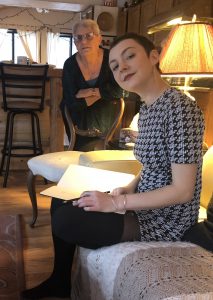
Speaking of imagination, Angela has been using this time to create poetry and collages about how these feelings could be interpreted in a utopia. “What would you need in a perfect world? You are safe, loved, entertained, have purpose, have food and shelter – you have everything you need. You don’t need all the amenities that are the reason we’ve gotten into this big divide,” Angela said.
And what new things have they discovered about themselves or the world in general?
Angela laughs, “Adam looks great without a beard!” Adam adds, “How much work can be done in your pajamas via technology and Zoom!”
But seriously, what do they hope will be different on the other side of this?
“Universal basic income that will save people’s lives,” said Angela. Adam thinks we’ll be having different conversations around death. “I think we’ll have a more meaningful way to discuss our mortality and how that should shape our existence while we’re here.”
Angela sees us walking into an era of kindness and change.
“We have to help one another for anyone to be successful. We have a new appreciation for grocery store workers and postal workers. People are saying thank you after taking these services for granted. I hope there will be a new appreciation for all levels of work, all levels of education, that the divide is addressed. The young people of Canada were coming together before this happened.
We hope that continues.”
Hope on the horizon
What will be different?
Hopefully the words of my subjects will help you decide what will be different for you and how you can bring that into your family, community, workplace, business or school. There is no doubt that we will be digging out of COVID-19 for some time. What my research shows is that we’ll be doing it with a greater understanding of the varying needs of different people, that we all matter, that those we didn’t recognize before were essential to getting us through and that we’ll only survive in the future if people and our environments, come first.
I also think there’s been a wakeup call to our governments. In the case of Canada our leaders have stepped up – in some cases a little slowly and with what many think isn’t enough – but it’s something.
What will we have learned?
The cracks in a system that had stopped serving the people have revealed themselves in many ways. We need to start now to address those gaps and flaws in ways that ensure we’re ready if this ever happens again. Most important, we need to hold our leaders – as well as ourselves – accountable.
We need to know who is speaking the truth and what the truth is. As we’ve seen, denying such truths can have catastrophic results.
I can’t say enough, how grateful I am to be living in Ontario, Canada.
How might we do better?
There are so many things to improve, even while we’re grateful and I leave it to you to decide what this will mean to you personally, professionally, socially, mentally and physically.
What the words of these people, young and old, and many others I spoke to tell us is that we are more connected than we may have ever known.
Our differences are less important as we all look toward the days, weeks and months ahead, all wanting one thing – to be together again.
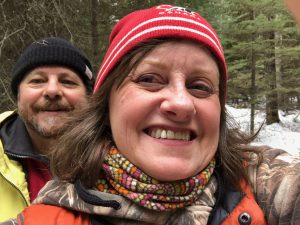
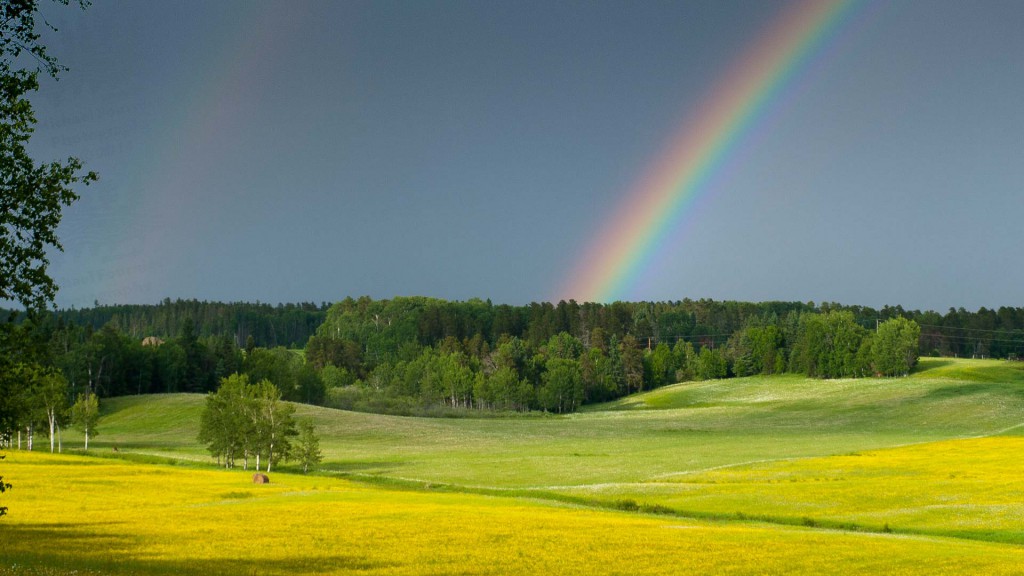
Additional reading, resources and ideas
The FREE resources below provide tools and tips to help you be well in the way that works for you. Get inspired, get well, get physical and maybe even get cooking while you can’t get out (as much)! But remember, there’s no pressure. We need to be extra kind to ourselves in these uncertain times, meaning naps are okay too!
Get inspired
Pandemic Reading Series Join in, get inspired, and live your creative life!
National Theatre at Home Enjoy world class theatre online.
Get together (while apart)
Virtual Dinner and a Movie Club: One member from a group of friends, family, even co-workers selects a movie for everyone to watch, and then the individual who chose the movie asks three questions that are discussed during a Zoom dinner date with the whole group. This helps generate conversation and getting to know one another on a different level.
Book vs. Movie/TV Adaptation: Pick books to read that have been made into a movie or TV show so that you have the experience of reading the book, then seeing how it was adapted.
These two great “get together” ideas are courtesy of Sarah Jenner, Executive Director, Mindful Leader.
Get well
COVID-19 and mental health The Canadian Mental Health Association has put together some resources and suggestions to help support your mental health at this time of uncertainty.
Kenora Recreation Centre My hometown gym is bringing its regulars together for daily workouts via Zoom. Come meet the group (it’s currently all women). Kelli’s class noon Monday’s is tough; classes Tuesday to Saturday 9 a.m.
Mental Health Week During CMHA Mental Health Week, let’s #GetReal about how we really feel. Find articles and tips on how to feel close, even when we can’t be.
25+ Fitness Studios and Gyms Offering Live-Stream Workouts During the Coronavirus Outbreak Courtesy of Good Housekeeping
COVID-19 Resources Dr. Joti Samra, R. Psych & Associates and MyWorkplaceHealth have created COVID-19 resources that include a series of videos and blogs offering tips on how to manage during these challenging times.
Videos to support people through COVID-19 The way you work has changed during these extraordinary times. Workplace Strategies is helping with a series of short videos.
Free Online Parent Support Group Support to help parents keep their mental wellness in check.
Get cooking
Dinners for Friends: While you might not cook extravagant meals for yourself, maybe you have a friend or acquaintance who is a first responder or working in essential services. Cook a meal or bake a treat for them and drop off a care package. It will help you feel like you’re supporting them and may also give you a renewed love of cooking new dishes. Idea courtesy of Sarah Jenner, Executive Director, Mindful Leader.
Advice for the general public about COVID-19 Dietitians of Canada and dietitians across the country have been asked a number of questions about nutrition and dietary issues related to the COVID-19 / Coronavirus outbreak.
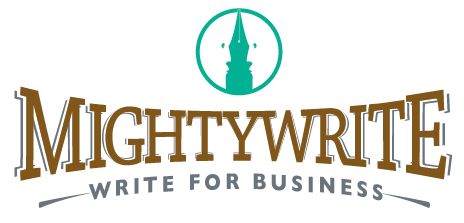
3 replies on “Where do we go from here?”
Leanne this is a terrific article; covered a number of ages (and areas in the world!) and was interesting to see the comments about class, universal income, technology, etc.
Will be sharing this and recommending your site to facebook.
I enjoy reading all your articles and we are lucky to have someone with your talent looking after the Lake of the Woods Area News magazine!
Hi Susan, I hope you are keeping well. I’m glad you enjoyed the read. Alot of it very close to my heart! We are in this together. Take care!
Thanks Leanne,
Enjoyed your article. Nice to read what others are thinking about this weird time in our lives.
Kelly